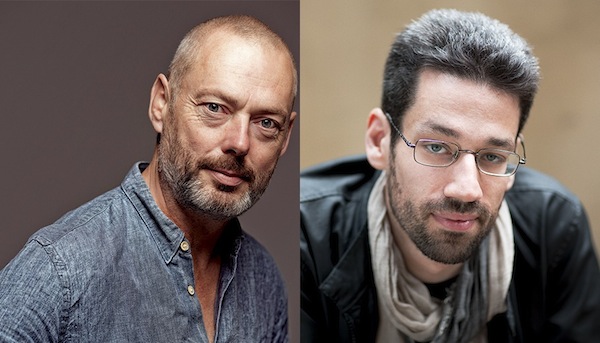Padmore, Biss find a handful of diamonds in rough recital

Mark Padmore and Jonathan Biss performed a Schubert program Friday night at Zankel Hall.
In the vast majority of song recitals, the pianist sits just outside the spotlight’s ring–wielding an enormous influence on the course of the performance, but also allowing the singer to be the focus of the audience’s attention. In principle, the prospect of hearing Jonathan Biss open Friday’s all-Schubert recital in Zankel Hall with Mark Padmore by performing a sonata was an enticing one.
Alas, Biss’s take on the Sonata in A Major, D. 959, was neither especially interesting nor especially polished. His approach to the opening Allegro, pounding his gestures into the keyboard, made it sound more like Beethoven than Schubert, and it didn’t help matters that he skipped or muddled a number of notes, even in relatively simple arpeggios.
The Andantino was in a more appropriate vein, ably contrasting the sad reminiscence and stormy passion that struggle against each other the movement. The Scherzo, in spite of a hint of spryness, was oddly humorless, showing more wit in the trio than in the scherzo proper. Only in the Rondo did Biss seem to express fully the wistful, longing spirit that is so essential to the Schubertian style, as he achieved a sighing, singing resonance from the very first statement of the theme.
Moving into the lieder that made up the second half, Biss immediately sounded more at home, bringing a gentler touch to “Im Freien” that felt perfectly suited to the tender sentiment of the music.
Unfortunately, Mark Padmore took quite a while to settle in, initially showing little vocal weight, and occasionally blaring forth like a claxon–it was hard to hear the interpretation as he struggled to find a consistent base. “Der Fischers Liebesglück” sounded positively feeble and he came up short on most of its top notes. “Der Winterabend,” one of the more famous of the selections on the program, an expression of profound contentment, simply sounded tired.
He had warmed up considerably by his fifth selection, “Herbst,” finding a tone that, though still lean, was firm, able to communicate the rueful angst of his interpretation. He showed intense focus in “Kriegers Ahnung,” contrasting his reedy upper range with the raw bristles of his low voice. The songs chosen for this recital showcase the variety of Schubert’s late work, and Padmore sounded equally comfortable with the arresting power of “Aufenthalt,” the bitter yearning of Ïn der Ferne,” and the reverent wonder of “Am Meer,” supported by the soft glow of the piano.
The unifying theme of the recital was a celebration of Schubert’s late works, and so it was fitting that the program ended with “Die Taubenpost,” commonly thought to be Schubert’s final lied. In the sweet longing and tender, sad affection of the music, Padmore and Biss got to the very heart of Schubert’s melancholy artistic soul.
The standout song on the program, though, was the penultimate one, “Der Doppelgänger,” a chillingly dark song with a strong dramatic element. Padmore’s narration was vivid, showing keen awareness of the text and delivering the music with harrowing vocal intensity, bringing the song at last to a crushing, unsettlingly calm conclusion.


